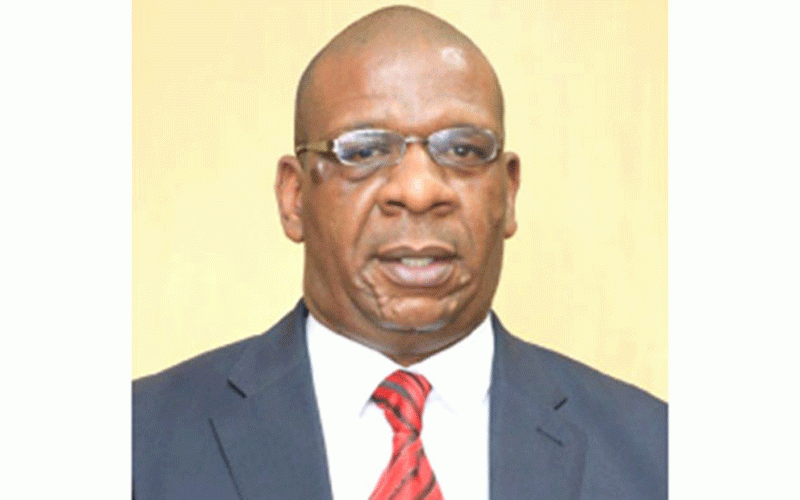
The Zimbabwe Association of Pension Funds (ZAPF) held its 50th annual congress in Victoria Falls last week. During the conference, government officials, pension experts and industry stakeholders highlighted the challenges facing the sector. Our Assistant Editor, Mthandazo Nyoni (MN), sat down with the association’s chairperson, Williefaston Chibaya, to discuss how the industry plans to address these hurdles and chart a path forward. Below are excerpts from the interview:
MN: You held your congress last week. What were the key takeaways?
WC: The key takeaway was the dire state of the industry. Our pensioners are going through a very difficult time. So, the main discussion centred on how we respond to these pensioners and what mechanisms must be put in place to tackle the challenges the industry is facing.
We identified the need to restore macro-economic stability and address currency instability. Managing the currency is crucial because inflation erodes the value of pensions. Another significant takeaway was the need for enhanced collaboration among the Insurance and Pensions Commission (Ipec), government, and industry players to find a lasting solution to the long-standing compensation issue. We must resolve this urgently.
Additionally, we discussed the importance of improving governance across the sector to ensure funds are efficiently and transparently managed.
MN: During the conference, some members argued that pension funds lack the financial capacity to compensate for the loss of value as recommended by the Justice Smith Commission. What is ZAPF’s position on this?
WC: That argument stems from the reality that many of the funds have been significantly depleted. Some actuarial results revealed that it would take some funds nearly 100 years to fully compensate pensioners. That’s why many are calling on the government to intervene and assist in the compensation process.
MN: Is there a future for pension funds in Zimbabwe?
- Tarakinyu, Mhandu triumph at Victoria Falls marathon
- Plot to oust ED thickens
- Bread in short supply as bakeries demand US$
- Young vocalist making southern Africa dance
Keep Reading
WC: Absolutely. Everyone who works will eventually retire, and retirement requires income security. So, pension funds will always be necessary. However, their survival hinges on addressing current structural and macroeconomic challenges. Without long-term stability, the sector cannot thrive. A stable economic environment is essential for pension funds to generate meaningful returns and fulfil their purpose.
MN: What key innovations or reforms is the association advocating to ensure pension funds remain sustainable and beneficial for future retirees?
WC: We are advocating for more liberal policies that create space for pension fund investments to grow. The persistent loss of value is our biggest enemy. Another pressing issue is the lack of robust, future-proof ICT systems. Poor data handling, outdated infrastructure, and inefficiencies in benefit payments all erode trust in the system.
We see technology as a key enabler. We are encouraging the adoption of fintech solutions, automation, blockchain, and AI for predictive analytics and secure transactions. Through our University Research Challenge, we are tapping into the minds of young technocrats to spark innovation.
Given the economy’s high level of informality, ZAPF is also promoting micro pensions and related products for informal workers. To remain relevant, we are fostering collaboration across the industry to share best practices and develop new solutions.
MN: Given Zimbabwe’s volatile economy, what alternative investment strategies is ZAPF promoting to help pension funds preserve and grow member contributions?
WC: While ZAPF does not directly prescribe specific asset classes, we advocate for a more favourable investment climate. We engage policymakers to push for liberal investment policies that enable pension funds to earn sustainable returns for their members.
MN: What regulatory changes would ZAPF like to see to strengthen the pension sector and protect members’ savings?
WC: First and foremost, we need sound monetary and fiscal policies that stabilise the economy. Long-term savings such as pensions can only flourish in a stable environment.
Resolving the pre-2009 compensation issue remains critical for restoring confidence in the sector. Ipec has already halted the dissolution of pension funds until this matter is concluded.
We support the new Pensions and Provident Funds Act, which brings important governance reforms. These include fit and proper requirements for board members and principal officers, as well as stricter compliance and reporting standards.
We are also beginning to advocate for policies that address climate-related risks in pension fund investments. Sustainable investment guidelines will become increasingly important.
MN: How is ZAPF working with pension funds to safeguard members’ savings amid high inflation and currency instability?
WC: We are actively engaging regulatory and policy authorities to advocate for inflation-linked investment instruments. For example, we promote pension benefits that are indexed to inflation or other economic indicators, to help preserve pensioners’ purchasing power over time.
MN: What is ZAPF’s position on the payment of pensions in United States dollars versus Zimbabwe Gold (ZiG), and how can fairness be ensured for pensioners?
WC: We support the use of both currencies. However, it is essential that the ZiG remains stable. If it quickly loses value, pensioners will be unfairly affected. Currency stability is key to ensuring fairness.
MN: With the rise of the informal sector and emigration, is ZAPF considering policies to make pensions more portable or flexible for workers in non-traditional employment?
WC: Yes, this is a key focus. Ipec’s introduction of the micro pension framework in 2023 was a game-changer. It encourages informal traders and small businesses to save for retirement. The creation of new pension and provident funds tailored for the informal sector will enhance financial inclusion.
While this is progress, we still need to develop more accessible and relevant products that cater to the unique needs of informal workers.
MN: How does the association ensure that pension funds remain relevant in an economy where many citizens struggle with low wages and high unemployment?
WC: We advocate for stronger financial literacy campaigns. People need to learn how to save and create value even from small incomes. Beyond that, we push for inclusive pension policies that expand coverage to all types of workers.
We also encourage the development of pension products that cater to low-income earners and those outside the formal employment structure. While ZAPF does not offer direct advisory services, we serve as an important advocacy platform — pushing the government for regulatory reforms, promoting transparency, and raising awareness of sector-wide issues.











